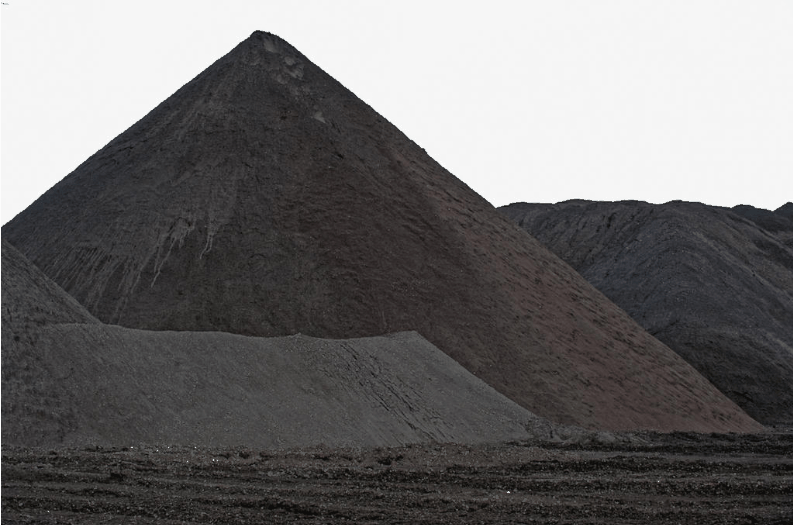Cloud Peak Energy says they will ship 4 million tons of coal from British Columbia’s Westshore Terminal this year. That means Cloud Peak is almost solely responsible for current US coal exports to Asia via BC. (See here and here for US Customs figures.) Yet in a new investor report, Cloud Peak says they can’t increase coal shipments to Asia because there’s not enough room at BC export terminals.
This is precisely the opposite of what Washington coal terminal supporters claim. They say that if Washington doesn’t build coal terminals, the coal will just go out from BC instead. In an August research memo, Coal Exports From Canada, I showed there is simply not enough room at BC’s ports, not even if they undergo planned expansions. But terminal supporters just keep repeating the falsehood anyway. (See here, for example). Now, the coal industry itself is knocking down supporters’ claims.
Here’s what Cloud Peak’s latest investor report says:
…next year’s exports will again be limited by available terminal capacity. In 2012, we will aim to export similar tonnage [4 million tons] through Westshore by working to maximize shipments as opportunities arise through the year. There are currently 0.3 million tons contracted to go through the Ridley terminal in 2012. As previously disclosed, exports through the Ridley terminal incur significantly higher rail costs than through Westshore due to the longer multi railroad haul.
In other words, the coal industry is weighing in on my side: if Washington doesn’t build coal export terminals, the coal can’t go.
A glance at the numbers confirms that Cloud Peak and I are right. Even under the most generous assumptions, Westshore has at most eight million tons of spare capacity. More realistically, however, there is probably almost no additional capacity there, at least not that US steam coal shippers can take advantage of. It’s possible that there will be four or five million tons of future spare capacity at North Vancouver’s Neptune Terminal, but it’s owned by a Canadian coal company, Teck, which ships much higher-value steel-making coal mined in Canada, and so far doesn’t appear interested in replacing domestic exports with low-value US coal. The only place with any meaningful spare capacity, and only after a planned expansion, would be Ridley Terminals, which is in northern BC, almost as far away as Ketchikan, Alaska. As Cloud Peak’s report confirms, the rail costs to move low-value steam coal that distance are close to prohibitive.
So where can Peabody or Cloud Peak or Arch or Ambre move the 100 million tons of coal they want to ship to Asia annually? Nowhere. They’re stuck. Not even the volumes planned for the first phase of Cherry Point—which would export 24 million tons per year—will have a chance of moving if the Northwest doesn’t allow it.
Update 1, Nov 10: Western Washington University law professor Jean Melious has a good example of the coal-will-just-go-to-Canada zombie myth. In a late October forum, according to Melious, coal terminal spokesman Craig Cole, “insisted that he knew for a certain fact that we’d have just as many coal trains through Bellingham even if the Cherry Point terminal were not built. Those trains absolutely definitely positively would carry the same amount of coal to Canadian ports.”
This is nuts. As Community Wise Bellingham has painstakingly demonstrated:
The only plausible way that Bellingham can experience the 20 a day increase in coal train traffic is if the proposed terminal at Cherry Point is built. If it is not built coal trains cannot just “go to Canada” because BC has no additional export capacity. On top of that the existing low-volume coal train traffic through Bellingham is likely to decline over time.
There are two incontestable facts. The first is the size of the coal terminal being proposed. You have probably already heard that it would be the largest coal terminal on the continent, but what is more important for the train discussion is how that capacity compares to the three major coal terminals in British Columbia. Simply put, the proposed terminal would be as large as the entire existing export capacity in all of BC. It is because of this ability to process essentially the same amount of coal as all three BC terminals combined that it would require the 20 trains a day.
The other fact is just as fundamental, there is simply no more coal export capacity in BC. It has been this way since 2010…
The numbers don’t lie. And you don’t have to take my word for it, you just have to believe what the Canadian ports say themselves and what the coal industry says.
Update 2, Nov 10: Now, it looks like even a planned capacity expansion at the far-northern Ridley Terminals will be absorbed by Canadian coal from Alberta. Even if it were economical to ship Powder River Basin Coal there—and Cloud Peak suggests that it’s iffy at best—the majority of the expansion will likely be dedicated to Canada’s domestic economy. This is not at all surprising given that Ridley Terminals is a government-owned facility with a mission to boost the Canadian resource economy.
Update 3, Jan 3, 2012: Post edited very slightly for accuracy.


Comments are closed.